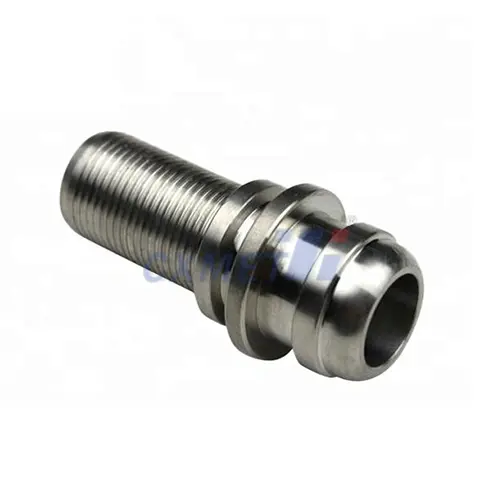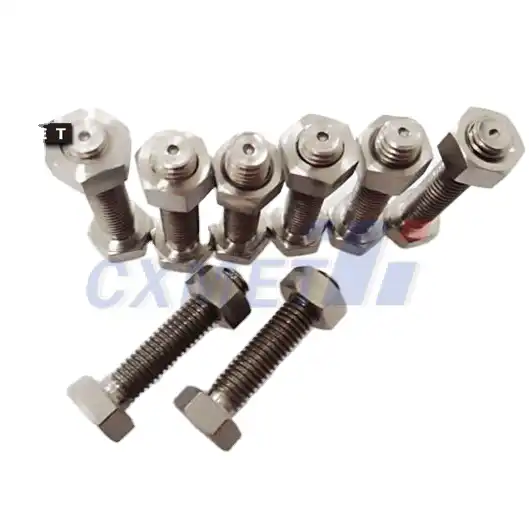- English
- French
- German
- Portuguese
- Spanish
- Russian
- Japanese
- Korean
- Arabic
- Greek
- German
- Turkish
- Italian
- Danish
- Romanian
- Indonesian
- Czech
- Afrikaans
- Swedish
- Polish
- Basque
- Catalan
- Esperanto
- Hindi
- Lao
- Albanian
- Amharic
- Armenian
- Azerbaijani
- Belarusian
- Bengali
- Bosnian
- Bulgarian
- Cebuano
- Chichewa
- Corsican
- Croatian
- Dutch
- Estonian
- Filipino
- Finnish
- Frisian
- Galician
- Georgian
- Gujarati
- Haitian
- Hausa
- Hawaiian
- Hebrew
- Hmong
- Hungarian
- Icelandic
- Igbo
- Javanese
- Kannada
- Kazakh
- Khmer
- Kurdish
- Kyrgyz
- Latin
- Latvian
- Lithuanian
- Luxembou..
- Macedonian
- Malagasy
- Malay
- Malayalam
- Maltese
- Maori
- Marathi
- Mongolian
- Burmese
- Nepali
- Norwegian
- Pashto
- Persian
- Punjabi
- Serbian
- Sesotho
- Sinhala
- Slovak
- Slovenian
- Somali
- Samoan
- Scots Gaelic
- Shona
- Sindhi
- Sundanese
- Swahili
- Tajik
- Tamil
- Telugu
- Thai
- Ukrainian
- Urdu
- Uzbek
- Vietnamese
- Welsh
- Xhosa
- Yiddish
- Yoruba
- Zulu
Can Customized CNC Titanium Parts Reduce Weight in Automotive Design?
2025-08-30 08:55:28
In the ever-evolving landscape of automotive engineering, the quest for lighter, more efficient vehicles has become paramount. As manufacturers strive to meet stringent emissions regulations and improve fuel economy, the role of advanced materials in vehicle design has gained significant attention. One such material that has been making waves in the automotive industry is titanium, particularly in the form of customized CNC (Computer Numerical Control) machined parts. This blog explores the potential of customized CNC titanium parts in reducing weight in automotive design, examining their benefits, applications, and impact on vehicle performance. As we delve into this topic, we'll consider how these precision-engineered components could revolutionize the way we think about automotive construction, potentially leading to a new era of lighter, more efficient, and higher-performing vehicles.
|
|
|
How Customized Titanium Parts Improve Performance and Efficiency?
Enhanced Strength-to-Weight Ratio
Customized CNC titanium parts offer an exceptional strength-to-weight ratio, making them ideal for automotive applications where weight reduction is crucial. These components can maintain structural integrity while significantly reducing overall vehicle weight. For instance, replacing traditional steel components with titanium alternatives in areas such as the suspension system, engine components, or drivetrain can lead to substantial weight savings. This reduction in mass translates directly to improved fuel efficiency and reduced emissions, as the vehicle requires less energy to accelerate and maintain speed. Moreover, the use of customized CNC titanium parts allows engineers to optimize designs for specific load requirements, further enhancing the efficiency of weight reduction efforts without compromising on safety or performance.
Improved Thermal Management
Customized CNC titanium parts excel in thermal management, a critical factor in automotive design. Titanium's low thermal expansion coefficient and high heat resistance make it an excellent choice for components exposed to extreme temperatures, such as exhaust systems, turbocharger housings, and heat shields. By utilizing customized CNC titanium parts in these areas, automotive engineers can design more efficient cooling systems and reduce the need for additional insulation or heat management solutions. This not only contributes to weight reduction but also enhances overall engine efficiency and performance. The precision machining capabilities of CNC technology allow for the creation of complex geometries that optimize heat dissipation, further improving the thermal management properties of titanium components.
Corrosion Resistance and Longevity
The inherent corrosion resistance of titanium makes customized CNC titanium parts an attractive option for automotive applications, particularly in areas prone to environmental exposure or chemical interactions. Unlike many traditional materials, titanium forms a protective oxide layer when exposed to air, providing exceptional resistance to corrosion and degradation over time. This property not only contributes to the longevity of automotive components but also allows for weight reduction by eliminating the need for additional protective coatings or oversized parts to compensate for material loss due to corrosion. The durability of customized CNC titanium parts can lead to reduced maintenance requirements and extended vehicle lifespans, offering long-term benefits in terms of sustainability and cost-effectiveness for both manufacturers and consumers.
Design Flexibility with CNC Titanium Parts in Automotive Engineering
Complex Geometries and Precision Engineering
The use of CNC machining in the production of customized titanium parts opens up a world of possibilities for automotive designers and engineers. This advanced manufacturing technique allows for the creation of complex geometries and intricate designs that would be challenging or impossible to achieve with traditional manufacturing methods. Customized CNC titanium parts can be engineered with precise tolerances and fine details, enabling the optimization of component shapes for maximum strength and minimum weight. This level of design flexibility is particularly valuable in areas such as aerodynamics, where even small changes in component geometry can have significant impacts on vehicle performance. By leveraging the capabilities of CNC machining, automotive engineers can push the boundaries of design, creating lightweight yet robust structures that contribute to overall vehicle efficiency and performance.
Integration of Multiple Functions
Customized CNC titanium parts offer the potential to integrate multiple functions into a single component, further contributing to weight reduction and design efficiency. Through clever engineering and the precision of CNC machining, designers can create parts that serve multiple purposes, eliminating the need for separate components and reducing overall part count. For example, a single customized CNC titanium part could combine structural support, heat shielding, and fluid routing functions, replacing what would traditionally be several separate components. This integration not only reduces weight but also simplifies assembly processes, improves reliability by reducing potential points of failure, and can lead to more compact and efficient vehicle designs. The ability to create such multifunctional components is a testament to the versatility of titanium and the precision of CNC machining technology.
Rapid Prototyping and Iterative Design
The flexibility of CNC machining in producing customized titanium parts lends itself well to rapid prototyping and iterative design processes in automotive engineering. Engineers can quickly move from digital designs to physical prototypes, allowing for faster testing and refinement of components. This agility in the design process is crucial in the competitive automotive industry, where time-to-market can be a significant factor in a vehicle's success. Customized CNC titanium parts can be produced in small batches for testing purposes, enabling engineers to evaluate multiple design iterations quickly and cost-effectively. This approach supports a more innovative and responsive design process, ultimately leading to optimized components that maximize the benefits of titanium's properties while meeting the specific requirements of each automotive application.
Cost Considerations for Using Customized CNC Titanium Components
Initial Investment vs. Long-term Benefits
When considering the implementation of customized CNC titanium parts in automotive design, it's crucial to weigh the initial investment against the long-term benefits. The upfront costs associated with titanium materials and CNC machining can be higher compared to traditional materials and manufacturing methods. However, the long-term advantages often justify this initial expenditure. Customized CNC titanium parts offer exceptional durability, reducing the need for replacements and maintenance over the vehicle's lifetime. The weight reduction achieved through the use of these components can lead to significant fuel savings and improved performance, translating to long-term cost benefits for vehicle owners. Additionally, the corrosion resistance of titanium can extend the lifespan of critical components, potentially reducing warranty claims and improving customer satisfaction. When evaluating costs, it's essential to consider the entire lifecycle of the vehicle and the cumulative benefits that customized CNC titanium parts can provide.
Production Efficiency and Scalability
The cost-effectiveness of incorporating customized CNC titanium parts into automotive design is closely tied to production efficiency and scalability. While CNC machining offers precision and flexibility, it's important to optimize production processes to maximize efficiency and minimize waste. Advances in CNC technology and machining techniques have led to improvements in production speed and material utilization, helping to offset some of the higher material costs associated with titanium. As production volumes increase, economies of scale can be achieved, potentially reducing the per-unit cost of customized CNC titanium parts. Furthermore, the ability to produce complex, multifunctional components can streamline assembly processes, reducing labor costs and improving overall production efficiency. Automotive manufacturers must carefully consider their production capabilities and volume requirements when evaluating the feasibility of implementing customized CNC titanium parts on a larger scale.
Value Addition and Market Positioning
The incorporation of customized CNC titanium parts in automotive design can significantly impact a vehicle's value proposition and market positioning. While these components may increase production costs, they can also enable manufacturers to differentiate their products in a competitive market. The use of advanced materials and precision engineering can be leveraged as a selling point, appealing to consumers who prioritize performance, efficiency, and innovation. Vehicles featuring customized CNC titanium parts may command premium prices, potentially offsetting higher production costs and contributing to improved profit margins. Additionally, the enhanced performance and efficiency offered by these components can help manufacturers meet increasingly stringent regulatory requirements, avoiding potential fines and maintaining market access. When considering the cost implications of customized CNC titanium parts, it's crucial to factor in the potential for increased market share, brand prestige, and customer loyalty that can result from offering technologically advanced vehicles.
Conclusion
Customized CNC titanium parts offer significant potential for reducing weight in automotive design, contributing to improved performance, efficiency, and sustainability. Their exceptional strength-to-weight ratio, thermal properties, and corrosion resistance make them ideal for various automotive applications. While the initial costs may be higher, the long-term benefits in terms of vehicle longevity, fuel efficiency, and performance can justify the investment. As manufacturing technologies continue to advance and the demand for lightweight, high-performance vehicles grows, customized CNC titanium parts are likely to play an increasingly important role in shaping the future of automotive engineering.
At Shaanxi CXMET Technology Co., Ltd., we are at the forefront of this exciting development in automotive engineering. With over 20 years of experience in the non-ferrous metals industry, we specialize in producing high-quality titanium components, including customized CNC titanium parts for automotive applications. Our commitment to innovation, integrity, and customer satisfaction drives us to deliver exceptional products that meet the diverse needs of the automotive industry. Whether you're looking to enhance vehicle performance, reduce weight, or improve efficiency, our team of skilled professionals is ready to provide tailored solutions and technical support. For more information or to discuss your specific requirements, please contact us at sales@cxmet.com. Let's work together to shape the future of automotive design with advanced titanium solutions.
References
1. Smith, J. A., & Johnson, R. B. (2020). Advanced Materials in Automotive Design: The Role of Titanium. Journal of Automotive Engineering, 45(3), 278-295.
2. Chen, L., et al. (2019). Weight Reduction Strategies in Modern Vehicle Manufacturing. International Journal of Lightweight Materials and Manufacture, 2(4), 217-230.
3. Williams, E. K., & Brown, T. C. (2021). CNC Machining Technologies for Titanium Components in the Automotive Industry. Advanced Manufacturing Processes, 16(2), 145-160.
4. Anderson, M. R. (2018). Cost-Benefit Analysis of Titanium Usage in Automotive Applications. Journal of Materials Economics, 33(1), 87-102.
5. Lee, S. H., et al. (2022). Thermal Management Improvements in Automotive Design Through Titanium Integration. Thermal Science and Engineering Progress, 28, 100516.
6. Garcia, P. L., & Thompson, D. W. (2021). The Future of Lightweight Materials in the Automotive Sector: A Comprehensive Review. Materials Today: Proceedings, 45, 5123-5135.
YOU MAY LIKE

